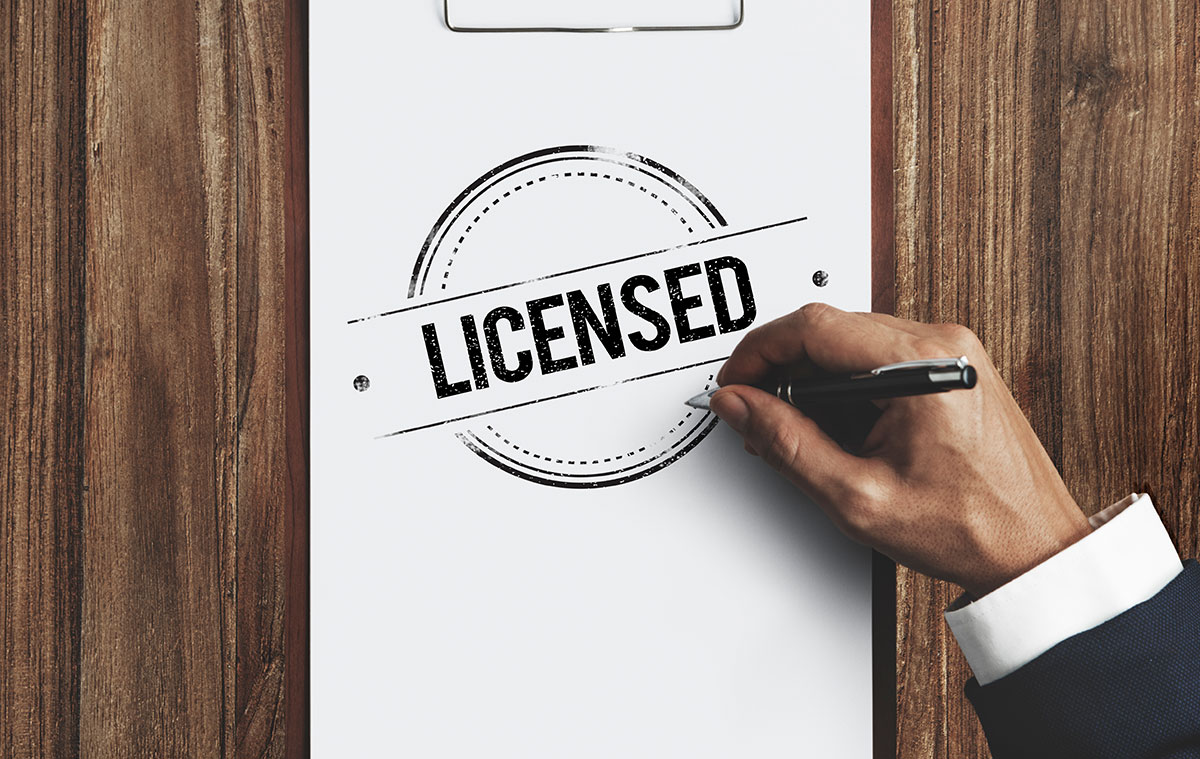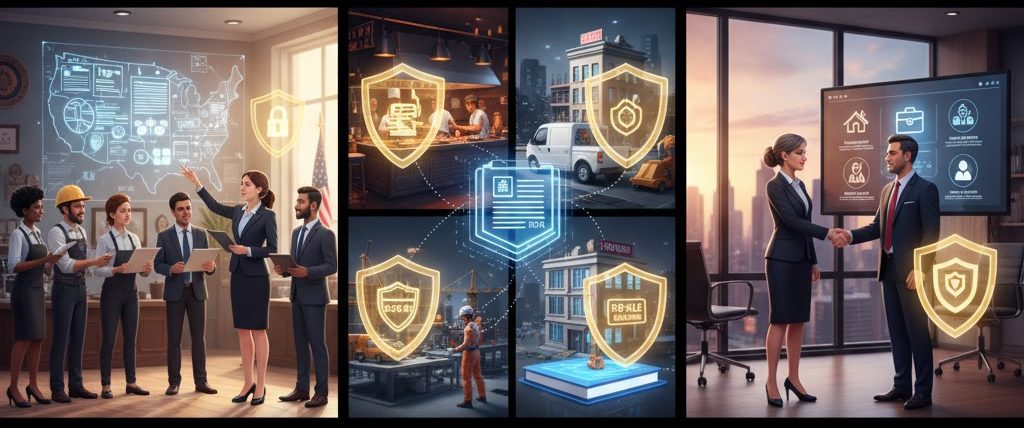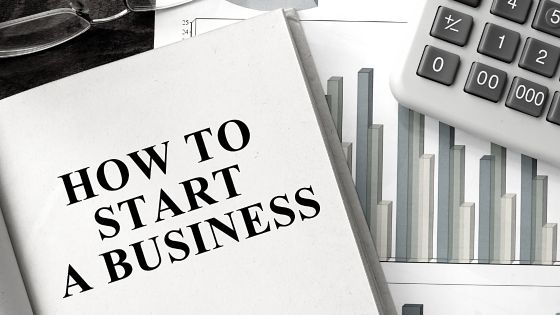Starting a business is exciting — but the paperwork can feel intimidating. If you’re wondering which licenses you need, where to apply, and why it matters, this guide is for you. I’ll walk you through the practical steps, explain common pitfalls, include research-backed context, and give clear, actionable checklists so you can move forward confidently.
Why business licenses matter (and what happens without them)
A business license is the government’s way of saying: “We know you’re operating here, and you’re following the rules.” Licenses and permits protect public safety (food, health, building codes), ensure fair taxation, and verify that professionals meet training and insurance standards.
Operating without required licenses can lead to fines, forced closure, back taxes, or trouble opening business bank accounts and getting insurance. In short: getting the right licenses is both legal protection and a trust signal for customers. Small Business Administration
Federal vs. state vs. local: who issues what?
- Federal licenses/permits are required when your business activity crosses interstate lines or falls under federal regulation (e.g., aviation, broadcasting, agriculture, firearms, commercial fisheries, transportation, export/import, certain food and drug regulations). If a federal agency regulates your activity, you need a federal permit. Small Business Administration
- State licenses are common for professions (e.g., real estate agents, contractors, barbers/hairdressers, medical professionals) and business registration requirements. States also oversee sales tax permits and many occupational licenses.
- Local (city/county) permits and licenses cover zoning, health inspections, certificate of occupancy, sign permits, and general business operation licenses. Many cities require a general business license even when no other permits apply. U.S. Chamber of Commerce+1
Quick checklist: the first 10 steps to get legal and open
- Decide your business structure (sole proprietor, LLC, S corp, partnership). This affects taxes and licensing needs.
- Choose and register your business name (DBA or trade name) with your state or county. Small Business Administration
- Get an Employer Identification Number (EIN) from the IRS — free and often required to open a business bank account or hire employees. IRS
- Check federal licensing needs — if your business is in a regulated sector, contact the relevant federal agency. Small Business Administration
- Research state professional licenses (if you provide regulated services).
- Apply for state sales tax permit / seller’s permit if you sell taxable goods.
- Contact your city/county clerk to determine local business licenses, zoning and health permits. FindLaw
- Obtain building, fire, or health inspections if you operate a physical location or food business.
- Buy insurance and keep license copies on file (general liability, workers’ comp if you have employees).
- Set up recordkeeping and renewal reminders — many licenses expire annually or biennially.
Common licenses and permits — quick reference table
| License / Permit | Who typically needs it | Issued by | Typical purpose / note |
|---|---|---|---|
| General business license | Most businesses (varies by city) | City/county | Legal permission to operate in a jurisdiction. U.S. Chamber of Commerce |
| Sales tax permit / seller’s permit | Retailers / businesses selling taxable goods | State revenue department | Required to collect & remit sales tax. |
| Employer Identification Number (EIN) | Employers, LLCs, corporations, partnerships | IRS (federal) | Tax ID for hiring, taxes, banking. Free from IRS. IRS |
| Professional/occupational license | Lawyers, doctors, barbers, electricians, contractors | State licensing boards | Confirms qualifications; can require exams, continuing education. |
| Health permit | Restaurants, food trucks, catering | County / city health dept | Food safety inspections and approvals. FindLaw |
| Certificate of occupancy | Any business in a commercial building | City building dept | Confirms space meets building & safety codes. |
| Home occupation permit | Home-based businesses | City/county zoning | Ensures business won’t disrupt residential area. Investopedia |
| Federal permits (e.g., environmental, FCC) | Regulated industries | Federal agencies | Necessary when activity is federally regulated. Small Business Administration |
How to find exactly which licenses you need (practical how-to)
- Start with the SBA’s license checklist — the U.S. Small Business Administration provides a clear gateway to federal, state and local licensing resources (search by business activity and location). Small Business Administration
- Use your state’s business portal — most states have a “one-stop” website listing professional boards, sales tax, and employer registration information. Small Business Administration
- Call your city or county clerk — local rules (zoning, signs, special permits) vary a lot and often aren’t easy to find online. FindLaw
- Check federal regulators if your business deals with transport, environment, agriculture, or communications. Small Business Administration
- Ask a mentor or local SBDC — Small Business Development Centers offer free or low-cost advising and can save you time and mistakes.
Industry-specific licensing (short checklists)
- Food & beverage (restaurant/catering/food trucks): health department permit, food handler cards, certificate of occupancy, possibly a liquor license. FindLaw
- Construction & contractors: state contractor’s license, building permits, bonding and insurance.
- Personal care (barbers, cosmetologists): state occupational license, continuing education.
- Professional services (accountants, architects, lawyers): state professional board license, sometimes federal registration (depending on services).
- Retail & e-commerce: seller’s permit, home occupation permit (if operating from home), business license.
- Healthcare: state medical licenses, Medicare/Medicaid enrollment, HIPAA compliance considerations.
Costs & timing — what to expect
Costs vary dramatically: a city general license may be $25–$400 annually; professional licenses can exceed several hundred dollars and include exam/renewal fees; federal permits may have additional application fees. Expect timelines from same-day (EIN from IRS) to weeks/months (professional licensing with exams or inspections).
Tip: budget for renewals and continuing education. Treat license renewals like taxes — set reminders and calendar alerts.
Research snapshot: Does licensing help or hurt workers and consumers?
There’s legitimate academic debate about occupational licensing. Research by economists Morris Kleiner (University of Minnesota) and Alan Krueger (Princeton University) — widely cited in policy discussions — shows licensing is common in the U.S. and can raise wages for licensed workers, but it may also restrict labor supply and reduce mobility in some professions. Licensing can improve consumer protection when it enforces training and safety, but overly broad or opaque licensing can create barriers to entry and higher consumer prices. For entrepreneurs, the takeaway is: licensing often raises standards — but it can also be a regulatory hurdle that affects costs and hiring. NBER+1
A step-by-step application walkthrough (example: opening a small café)
- Legal structure & name — file for LLC or register DBA with your state. Small Business Administration
- EIN — apply on the IRS site (free). Keep the confirmation for bank accounts and tax filings. IRS
- State sales permit — register with the state’s revenue department to collect sales tax.
- Local business license — apply to your city clerk. Bring your state registration paperwork. FindLaw
- Health department inspections — submit plans (kitchen layout, plumbing), pass food safety inspections to get a health permit. FindLaw
- Certificate of occupancy — get from the building department after any necessary construction and inspections.
- Liquor license (if applicable) — state and local processes; often lengthy and costly.
- Insurance — general liability and property insurance; workers’ comp if you hire.
- Record & schedule renewals — many local health permits and licenses require annual renewal.
Pitfalls and mistakes to avoid
- Relying on paid middlemen without verifying: some third-party websites charge fees to “help” get an EIN or license that the IRS or state offers free — always verify you’re on an official .gov site. A recent report warns users to avoid misleading ads and verify domain authenticity when applying for government services. The Washington Post
- Assuming a license in one state covers you in another: licensing and reciprocity rules vary. If you plan to expand, research each state’s rules. NBER
- Skipping local checks: ignoring zoning or health department rules can lead to costly shutdowns. Always check with city/county officials. FindLaw
- Missing renewals: set calendar reminders — many licenses lapse and penalties can add up.
- Under-budgeting: licensing, inspections, and compliance add cost. Build them into early financial projections.
Useful forms & where to look (starter list)
- SBA — Apply for licenses & permits: guidance for federal/state/local checklists and links. Small Business Administration
- IRS — Apply for EIN: official, free application for a federal tax ID. IRS
- State business portals: search “[your state] business license” or visit your state’s official site. Small Business Administration
- Local city/county websites: for zoning, occupancy, and health permits. FindLaw
Short listicle: 7 Quick wins to speed up licensing
- Gather identity & entity documents first: personal ID, articles of organization/incorporation, DBA filing.
- Apply for EIN before opening a bank account — banks often require it. IRS
- Use official .gov websites — avoid paid middlemen. The Washington Post
- Ask for checklist PDFs from your city health/building department — they often list required inspections. FindLaw
- Take required training early (food safety, contractor safety) so you don’t delay inspections.
- Bundle applications when possible — some states/localities allow multi-permit filings. Small Business Administration
- Set a recurring calendar reminder for renewals — save on late penalties.
FAQs — Answers people search for (optimized for featured snippets)
Q: Do I need a business license if I’m a sole proprietor?
A: Often yes. Many cities require a basic business license regardless of structure. Additionally, specialized activities (selling goods, offering regulated services) usually require specific permits. Check city and state requirements. U.S. Chamber of Commerce+1
Q: How long does it take to get an EIN?
A: If you apply online at the IRS site, you can often receive your EIN immediately. Beware of look-alike paid services; the IRS issues EINs for free. IRS+1
Q: What’s the difference between a sales tax permit and a business license?
A: A sales tax permit (or seller’s permit) lets you collect sales tax on taxable goods and is issued by the state revenue department. A business license is a general permission to operate in a city or county and may cover zoning, safety, and business registration. Both may be required. FindLaw+1
Q: Do professional licenses transfer between states?
A: Not always. Some professions have reciprocity agreements; many do not. If you move or expand, check the licensing board rules in the new state. Research shows licensing can reduce interstate mobility for workers in some fields. NBER
Q: Can I be fined for not having the right license?
A: Yes. Penalties range from fines to closure orders. For professionals, practicing without a license can also lead to criminal penalties in some states. Always confirm local requirements.
Q: Where can I get help for free?
A: Contact your local Small Business Development Center (SBDC), state business portal, or city clerk. Many offer free counseling and step-by-step help. Small Business Administration




